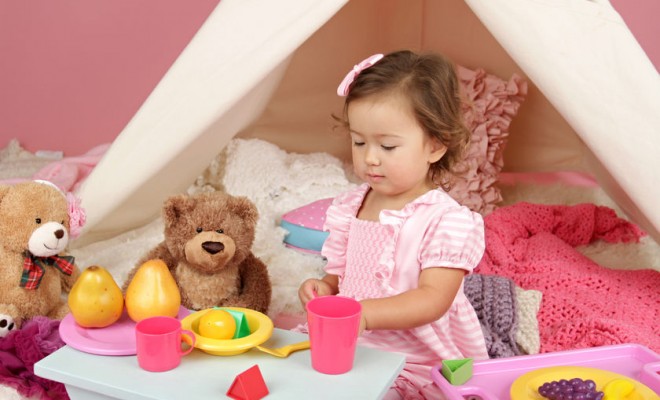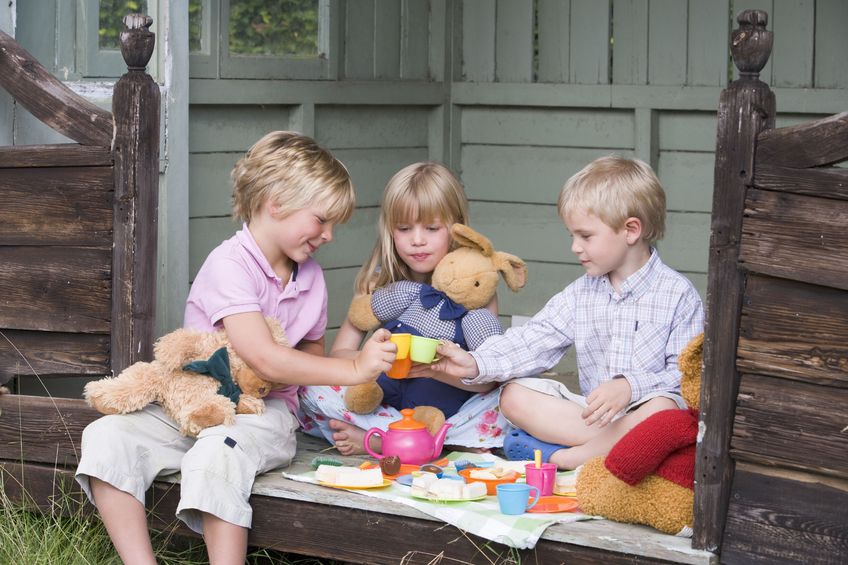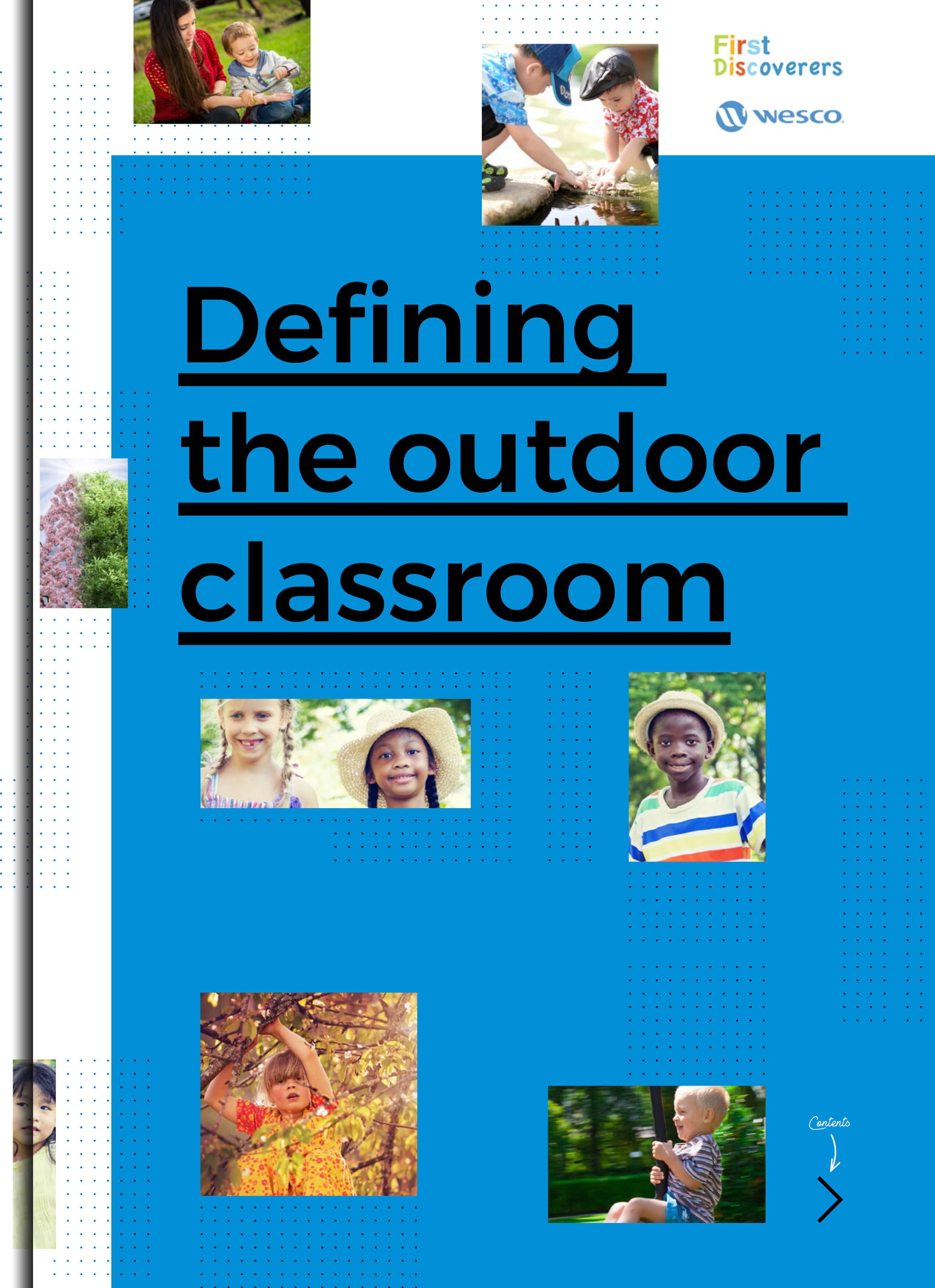
Cognitive Development
The Importance of Pretend Play
Pretend play can help children to develop many different types of social skills, it can assist physical development, and is particularly vital to emergent language and verbal skills. Early years practitioners, parents and carers can support the children in their care to gain even more benefit from time spent engaged in pretend play by having a full understanding of the impact it can have on young minds. Pretend play can have many forms, such as role play, puppets and playing with dolls and small world toys.
Playing with puppets can encourage shy children to verbalise their thoughts.
Role Play
The first stage of pretend play is the imitative play of very young babies; games such as ‘Peekaboo’ and copying simple gestures, such as waving or sticking the tongue out. Around the age of two and a half, children begin to take on the roles of mothers and fathers in very simple imaginary games. Later, three and four-year-olds will enjoy extending this play to include members of their wider community, such as aunts and uncles, firefighters or characters from books or favourite films.
Nurseries and pre-schools can encourage and support this type of imaginative role play by having a well-equipped ‘Home Corner’ that has a realistic toy kitchen, a good selection of dolls, and plenty of accessories. There is so much to choose from, the difficulty of knowing when to stop. Practitioners can model this type of role-play to support developing language skills – watching children play together in the home corner is always a great opportunity to carry out discreet observations and assessments; there is always so much that can be learnt from watching children at play.

You can help to support children’ role play by having a selection of dressing up clothes in your setting. These days, ready-made costumes are very attractive and are available in a wide range of costumes, such as medieval knights, policemen, to princesses, nurses, and doctors. Make the costumes accessible and appealing by hanging them on a child-height rail, ensuring that the sets are complete. It’s always a good idea to encourage inclusion and diversity by sourcing some attractive objects from other cultures, such as a pair of Chinese slippers, or an Indian sari.
Super Heroes
Playing at being a superhero such as Batman or Spiderman, or even just a mythical being with the ability to fly or cast spells is a perennially popular form of play with boys and girls alike, and it is easy to see why. Small children enjoy the chance to become powerful and make their own rules, and make sense of a world that often seems confusing. Superhero play helps to boost confidence and channel energy way in a positive way.
Violent Pretend Play
Many pre schoolers are fond of rather violent games of make believe shooting and killing, often to the consternation of their parents. Guns and weapons are by no means necessary, if children wish to play these types of games, they will find a way to do so, and a pen or a stick will do just as well. While there is no need to encourage this type of play, the good news is that it is completely normal and the fact that children are using symbolic objects, is, in fact, a sign of growing readiness for learning to read; understanding that marks on a page symbolise letters and sounds is an essential skill for decoding words.
Children sometimes use pretend play as a way of working out real-life thoughts and emotions and it can help to alleviate fears and worries
Puppets
Puppets can be used at circle time to introduce new topics to children, by modelling behaviours, such as healthy eating, playing kindly together and so on. Children can make their own puppets as a fun activity, using socks, or wooden spoons, wool, glue and glitter and a few interesting oddments from the craft cupboard. Playing with puppets can encourage shy children to verbalise their thoughts. Puppets can be used to reenact real life situations, favourite stories or imaginative scenarios. all are valuable opportunities for cognitive development.
It can be difficult for a practitioner to know how and when to intervene in imaginative play. Adult intervention can be beneficial and take the play in a new direction- this is particularly useful when the play is in danger of becoming repetitious and dull, or potentially an area of conflict. Sensitivity is highly important; children need to have their privacy respected and the freedom for their play to develop in their own way. Early years workers should ideally wait to be invited to join in the play and then join in as an equal participant rather than a leader. Adding new vocabulary to the game in a subtle manner helps to enrich language and development.
Practitioners can also offer support by guiding the play, this can be done by setting up scenarios, such as a hospital corner, that can help children who are experiencing challenging situations, such as the birth of a sibling or a trip to the hospital. Children sometimes use pretend play as a way of working out real-life thoughts and emotions and it can help to alleviate fears and worries.
Pretend play is sometimes undervalued in place of other activities that more obviously help readiness for school, such as drawing and other table top activities. Imaginary play, however, is crucial for emotional, social, physical and cognitive development and deserves to have plenty of energy and resources devoted to making it an as enriching an experience as possible for all children.
Defining The Outdoor Classroom – Download Free eBook







You must be logged in to post a comment Login